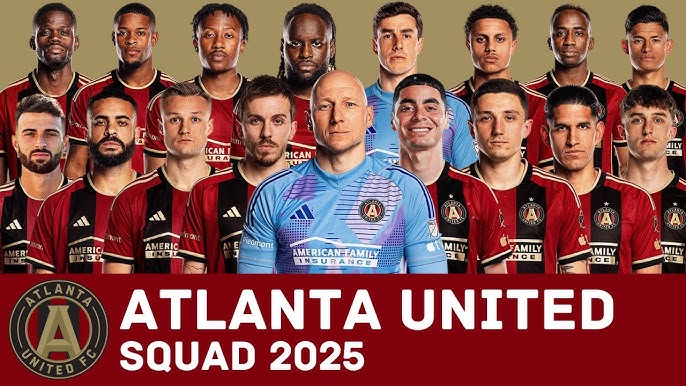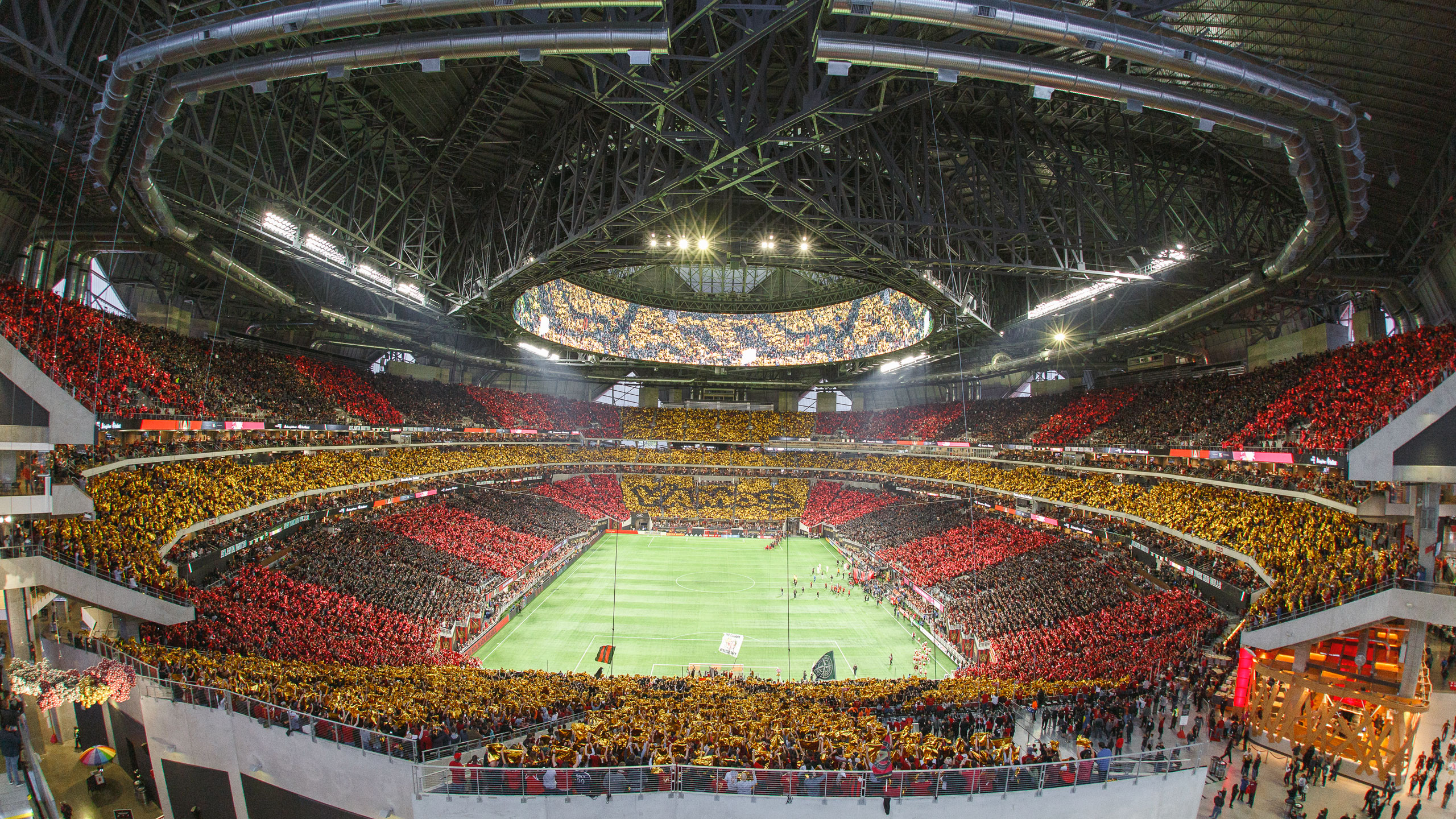MLS
Atlanta United FC: A New Era of Soccer in the South

Atlanta United: A New Era of Soccer in the South
When Major League Soccer (MLS) awarded Atlanta an expansion franchise in 2014, many skeptics wondered whether the South was truly ready for professional soccer at the highest level. The American Southeast had long been considered difficult ground for sustaining professional soccer clubs, but Atlanta United FC quickly proved those assumptions wrong. By the time the club played its inaugural match in March 2017, it had already sold over 30,000 season tickets—an unprecedented figure for a brand-new MLS team. That moment marked not just the birth of Atlanta United, but the arrival of a cultural force that would help redefine the trajectory of the league.
From the outset, Atlanta United embraced a vision of ambition and excellence. Founded by Arthur Blank, the co-owner of The Home Depot and longtime owner of the NFL’s Atlanta Falcons, the team was designed to become a flagship club for MLS. Unlike other expansion sides that grew slowly into competitiveness, Atlanta United was constructed to win—and win fast. Under the guidance of Argentine coach Gerardo “Tata” Martino and with the star power of young South American talents like Miguel Almirón, Josef Martínez, and Héctor Villalba, the team established a high-octane, attacking style of play that electrified crowds at Mercedes-Benz Stadium.
Atlanta United’s legacy is already remarkable for a club so young. In just its second season (2018), the team captured the MLS Cup, defeating the Portland Timbers before a crowd of over 73,000 fans—still one of the largest attendances in North American soccer history. That victory validated the club’s philosophy and gave Atlanta a championship that united the city across demographics, cultures, and generations. For Atlanta—a city often searching for a team to rally around—United quickly became a cultural touchstone.
The club’s culture is deeply intertwined with Atlanta’s identity as a diverse, cosmopolitan city. Nicknamed the “Five Stripes” for its bold black, red, and gold kit design, Atlanta United has embraced the energy of its fan base, which includes vibrant supporters’ groups like Terminus Legion, Resurgence, and Footie Mob. On match days, Mercedes-Benz Stadium transforms into a sea of red and black, with raucous chants, drums, and tifos rivaling those in European or South American stadiums. The club has given Atlanta not just a winning team, but also a new cultural gathering point—an urban spectacle that reflects the city’s growth and pride.
Rivalries
As a relatively new franchise, Atlanta United is still developing its rivalries, but it has already forged some of the most heated matchups in MLS. The fiercest is with Orlando City SC, a rivalry known as the “Southern Derby.” From the moment Atlanta entered the league, Orlando supporters saw them as interlopers, while Atlanta fans responded with chants that highlighted their rapid success compared to Orlando’s struggles. Matches between the two sides are intense affairs, with raucous atmospheres both in Atlanta and Orlando.
Another budding rivalry exists with Nashville SC, given the geographic proximity and cultural parallels between the two cities. Their clashes, often branded as the “I-75/I-24 Rivalry,” are marked by regional bragging rights and increasingly competitive matches.
Atlanta has also engaged in dramatic encounters with New York Red Bulls, especially during the 2018 season when both sides vied for dominance at the top of the Eastern Conference. The playoff meetings added extra fuel to this rivalry, and Red Bulls supporters frequently travel south to add to the charged atmosphere.
Trivia: Atlanta United remains the only MLS expansion team to win MLS Cup within its first two seasons, which only intensifies the jealousy and hostility from regional rivals still searching for that kind of glory.
Atlanta United: Ownership
Atlanta United owes much of its success to its ownership group, led by Arthur Blank, one of the most respected figures in American sports. Blank, who also owns the NFL’s Atlanta Falcons, brought the same level of commitment, resources, and vision to Atlanta United that he did to professional football. From the beginning, Blank made it clear that Atlanta United would not be a secondary venture—it would be built to compete at the highest levels of MLS.
Blank’s philosophy has always emphasized community connection, fan engagement, and operational excellence. He invested heavily in world-class facilities, including the Children’s Healthcare of Atlanta Training Ground, a state-of-the-art training complex that rivals those in Europe. More importantly, Blank provided the resources to acquire high-profile international players and coaches. His willingness to spend, combined with smart scouting in South America, allowed Atlanta United to outpace many longer-established MLS clubs.
Trivia: Blank’s ownership style is famously hands-on when it comes to culture but hands-off in technical decisions. He reportedly gave Tata Martino and the front office full control of soccer operations, trusting their expertise while focusing on building the brand and infrastructure.

Watch Atlanta United
Few venues in MLS can rival Mercedes-Benz Stadium, which Atlanta United shares with the Atlanta Falcons. Opened in 2017, the stadium is a marvel of modern architecture, featuring a retractable roof, cutting-edge video boards, and a capacity that can swell to over 70,000. For soccer matches, the upper levels are often curtained off to create a more intimate environment of around 42,000–45,000, but for big matches, the full stadium opens—and shatters MLS attendance records.
Mercedes-Benz Stadium has become synonymous with Atlanta United’s identity. The roar of tens of thousands of fans chanting “A-T-L!” reverberates through the venue, while the stadium’s acoustics amplify the energy to deafening levels. Supporters’ traditions, like the Golden Spike Ceremony—where celebrities, community figures, or fans drive a giant railroad spike into a platform before kickoff—add a unique local flair that reinforces the club’s connection to Atlanta’s history as a railroad hub.
Trivia: Atlanta United’s 2018 MLS Cup Final at Mercedes-Benz Stadium drew 73,019 fans, setting a record for the largest standalone soccer crowd in U.S. history.
Atlanta United: This Season
The 2025 season finds Atlanta United in an intriguing place. After a few up-and-down years following their 2018 title, the club has worked to reestablish itself as a perennial contender in the Eastern Conference. Under the guidance of its coaching staff, the team has emphasized a return to the fast-paced, attacking soccer that defined its early identity.
Key players this season include young South American stars alongside established MLS veterans. The squad continues to rely on strong offensive firepower, with creative midfielders orchestrating play and strikers capable of producing goals in big moments. The defensive line, long considered an area of needed improvement, has been bolstered with new signings to solidify the backline.
Tactically, the team has sought to balance the flair and creativity fans expect with the discipline needed to compete in a league where parity makes every match unpredictable. Injuries have tested the depth of the roster, but the club’s investment in its academy and pipeline of young players has started to pay off.
For fans, this season is about more than wins and losses—it’s about whether Atlanta United can reclaim its identity as not only a playoff regular but also a legitimate MLS Cup contender.
Atlanta United: What to Follow
Looking ahead, Atlanta United offers several compelling storylines for fans and observers. First, can the club sustain its model of recruiting young South American talent and selling players to Europe while remaining competitive domestically? The sales of stars like Miguel Almirón to Newcastle United have been profitable but have also left big shoes to fill on the pitch.
Second, how will Atlanta United continue to grow its academy and pipeline of homegrown players? Developing local talent has become a league-wide emphasis, and Atlanta is well positioned to contribute, given Georgia’s rapidly growing youth soccer culture.
Third, the evolution of rivalries promises more drama in the coming years. As Orlando, Nashville, and Miami grow into stronger clubs, the Southern soccer rivalries will become some of the fiercest in MLS.
Finally, fans will be watching whether Atlanta United can add to its trophy case. After the 2018 MLS Cup, the 2019 U.S. Open Cup, and the Campeones Cup, supporters are eager for the team to reassert itself as a powerhouse not just in MLS but across North America.
Trivia to close: Atlanta United set the single-season MLS attendance record in its inaugural year and has led the league in average attendance nearly every year since—a testament to how a city once doubted for its soccer passion has become the epicenter of the sport in the United States.
